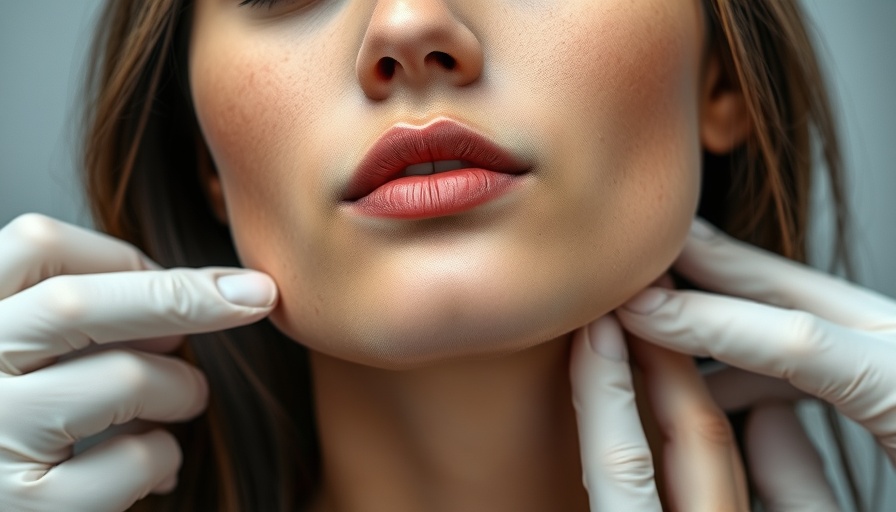
Breaking Down the Latest Advancements in Dermatology
As we navigate the complexities of autoimmune diseases and dermatological conditions, recent insights from dermatology conferences highlight significant advances in treatment protocols. Between August 11-15, a multitude of developments emerged, ranging from new drug approvals to the inherent challenges facing different patient demographics.
Promising Treatments for Autoimmune Disorders
Nektar Therapeutics recently showcased its investigational drug, Rezpegaldesleukin, at the forefront of groundbreaking treatment for autoimmune disorders such as alopecia and lupus. In a landscape where therapeutic options are often limited, Rezpegaldesleukin presents a novel pathway, aiming to redefine how these disorders are managed. The potential for this therapy to offer relief highlights the ongoing need for innovative treatment solutions tailored to individual patient experiences and needs.
Guselkumab's Long-Term Benefits for Plaque Psoriasis
The long-term efficacy of guselkumab has been notably documented in treating plaque psoriasis. According to recent studies, patients utilizing this treatment have experienced a pronounced improvement in their quality of life. Such findings are particularly relevant in the context of Psoriasis Action Month, showcasing a broader trend towards patient-centered care in dermatology that works to reduce stigma and enhance well-being.
Educational Efforts and Community Awareness
This week also marked the first annual Generalized Pustular Psoriasis (GPP) Awareness Day, an initiative aimed at elevating public understanding of the condition and its impacts on those affected. Community efforts like these are critical, not only to provide support but also to disseminate valuable research and treatment options that might often go unnoticed. These awareness initiatives serve as a bridge between clinical research and public knowledge.
Emerging Concerns with Sunscreen Use
Additionally, a recent FDA warning regarding whipped sunscreens has raised important questions about product safety and consumer awareness. As dermatology professionals and influencers navigate these emerging concerns, the emphasis on evidence-based practices has never been more critical. Consumers are advised to remain vigilant about the efficacy and safety of the skincare products they choose.
Innovative Insights from Pediatric Dermatology
During the 50th Annual Society for Pediatric Dermatology Meeting, advancements in the treatment and management of pediatric dermatological conditions were spotlighted, underscoring the importance of specialized care in this demographic. As children present unique challenges and responses to treatment, solutions crafted specifically for them are invaluable. This shift toward targeted care echoes a wider movement within dermatology—one that meets patients where they are in their journey to health.
The Broader Significance of Low BSA Psoriasis
New research reveals that even patients with low Body Surface Area (BSA) psoriasis can experience significant disease burdens. This challenges the traditional view that treatment criteria are solely based on visible symptoms. It emphasizes the necessity of comprehensive care strategies that consider holistic patient well-being, rather than only focusing on clinical metrics.
Conclusion: The Future of Dermatology
In conclusion, as advancements in dermatological science continue to unfold, it is evident that integrating innovative therapies and patient-centered approaches can significantly enhance the quality of life for individuals experiencing these conditions. The insights gathered over the week underscore the continuous need for education, awareness, and progressive treatment options. For individuals affected by skin conditions, staying informed about these developments is crucial in navigating their healthcare journey.
As we look ahead, embracing these advancements can lead to improved outcomes and foster a more inclusive understanding of autoimmune and dermatological conditions. Keep abreast of these developments to better support your skin health journey.
 Add Row
Add Row  Add
Add 




Write A Comment